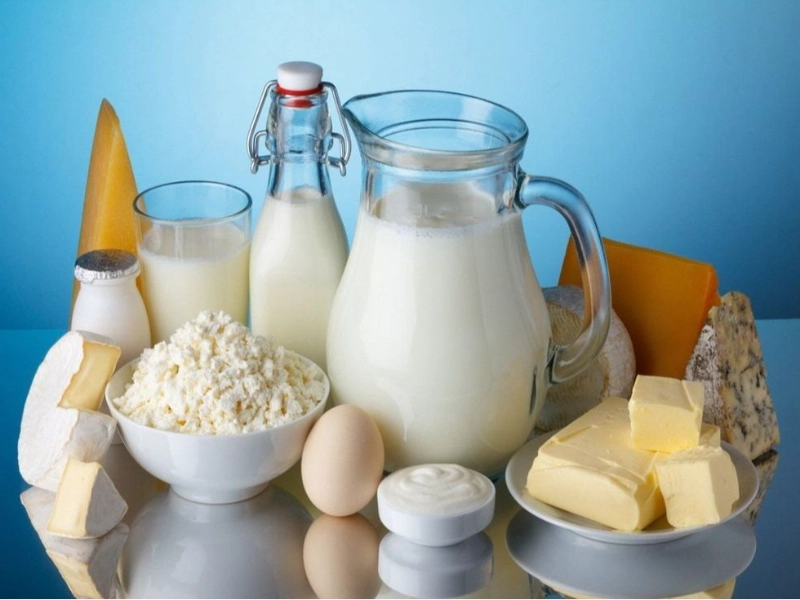How Vitamin D Contributes to Muscle Strength and Function
1. The Role of Vitamin D in the Body

2. Understanding Muscle Strength and Function
 Muscle function is the general performance of a muscle during physical exercise; muscular strength is its capacity to exert force. Muscle strength and function can be much changed by age, diet, and degree of physical exercise. Known as sarcopenia, people's muscular mass and strength generally drop with aging. Correcting nutrient shortages, especially vitamin D, can assist to lessen these effects and encourage greater muscular condition.
Muscle function is the general performance of a muscle during physical exercise; muscular strength is its capacity to exert force. Muscle strength and function can be much changed by age, diet, and degree of physical exercise. Known as sarcopenia, people's muscular mass and strength generally drop with aging. Correcting nutrient shortages, especially vitamin D, can assist to lessen these effects and encourage greater muscular condition.
3. Vitamin D and Muscle Fiber Composition
 Studies show that vitamin D affects muscle fiber composition—especially the fast-twitch to slow-twitch muscle fiber ratio. Slow-twitch fibers are more endurance-oriented; fast-twitch fibers are in charge of explosive motions and strength. Enough vitamin D could help fast-twitch muscle fibers grow, so improving general muscular strength and performance. For athletes and those doing strength training especially, this is quite helpful.
Studies show that vitamin D affects muscle fiber composition—especially the fast-twitch to slow-twitch muscle fiber ratio. Slow-twitch fibers are more endurance-oriented; fast-twitch fibers are in charge of explosive motions and strength. Enough vitamin D could help fast-twitch muscle fibers grow, so improving general muscular strength and performance. For athletes and those doing strength training especially, this is quite helpful.
4. Mechanisms of Action
 Vitamin D acts on muscle strength via a number of processes. It improves the expression of muscles-specific proteins including myoglobin and several enzymes engaged in energy metabolism. Furthermore present in muscle tissue are vitamin D receptors, which lets the vitamin directly affect the operation of muscle cells. This interaction emphasizes the need of keeping enough vitamin D levels since it helps muscles contraction and general performance.
Vitamin D acts on muscle strength via a number of processes. It improves the expression of muscles-specific proteins including myoglobin and several enzymes engaged in energy metabolism. Furthermore present in muscle tissue are vitamin D receptors, which lets the vitamin directly affect the operation of muscle cells. This interaction emphasizes the need of keeping enough vitamin D levels since it helps muscles contraction and general performance.
5. The Connection Between Vitamin D Deficiency and Muscle Weakness
Particularly in elderly persons, vitamin D shortage has been related to muscle weakness and higher risk of falls. Low vitamin D levels can cause muscle atrophy and decreased strength, which would make daily tasks challenging for such conditions. Particularly in groups at risk of insufficiency, regular vitamin D level monitoring can assist pinpoint people who can benefit from dietary adjustments or supplements to enhance muscular condition.
6. Sources of Vitamin D
One can get enough vitamin D by means of several sources. Since the body generates vitamin D naturally under sunlight, many people rely mostly on sun exposure. Still, elements including geographic location, skin tone, and lifestyle can influence sunshine exposure. meals high in vitamin D include egg yolks, fortified meals (like milk and cereals), and fatty fish like salmon and mackerel. For individuals not able to satisfy their needs with diet and sunlight, supplements might be a good choice.
7. Recommended Daily Intake
Age, sex, and life stage all affect the advised daily amount (RDA) for vitamin D. Most adults have an RDA between 600 and 800 IU (International Units) daily. Higher dosages, however, may be needed by some people—especially those with minimal sun exposure or particular medical issues. See a healthcare professional to ascertain the suitable dosage and guarantee ideal levels of vitamin D for general health and muscle power.
8. The Impact of Vitamin D on Athletic Performance
Given that it improves muscle strength, power, and endurance, athletes especially could gain from enough vitamin D levels. Studies have indicated that vitamin D supplements can enhance performance in many sports, particularly those demanding strength and explosive motions. Athletes who guarantee enough vitamin D intake can maximize their training and recovery, so improving their performance generally and lowering their injury risk.
9. Lifestyle Factors Affecting Vitamin D Levels
Vitamin D levels in the body can be changed by several aspects of lifestyle. Vitamin D metabolism is highly influenced by age, body weight, and physical exercise among other things. While those with greater body fat percentages may store vitamin D in fat cells, therefore reducing its availability for utilization, older folks may have a limited capability to synthesis vitamin D from sunshine. Maintaining a good weight and consistent physical activity serve to support muscle function and raise vitamin D status.
10. Summary of Vitamin D's Contribution to Muscle Health
A necessary vitamin, vitamin D greatly influences muscular strength and function. Its function in protein synthesis, muscle fiber composition, and general muscular performance emphasizes the need of preserving appropriate levels. People can maintain their muscle health and improve their physical performance by including sources of vitamin D into the diet, guaranteeing enough sunlight exposure, and, when needed, thinking about supplements. stressing the need of this vital vitamin helps people to be proactive in seeking higher general well-being and muscular strength.









